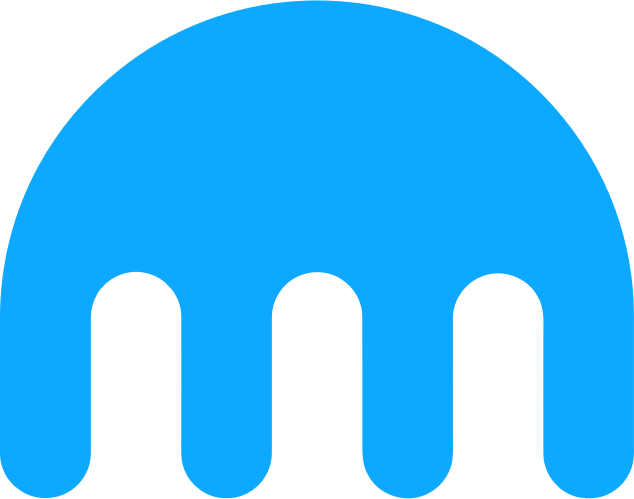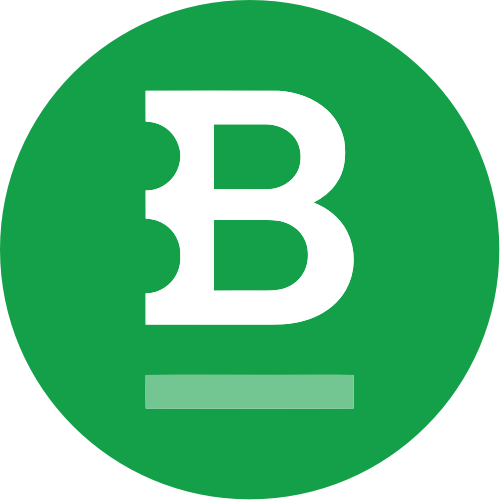Bitcoin Cash (BCH) Live Price

Market capitalization of a coin is calculated by multiplying the current price in USD or EUR of a single unit of coin by the current circulating supply of that coin available for sale or purchase on public exchanges.
Ex: If the price of BTC is currently $20,000 and there are 50,000 BTC available on public exchanges, then the Market Cap of BTC is $1,000,000,000.
Volume of a coin is the total spot trading volume reported by all exchanges over the past 24 hours multiplied by the value of an individual unit of that coin.
Circulating supply is the approximate number of units of a coin that are currently circulating in the market in the hands of the general public.
Release date is when the first tokens of this cryptocurrency were created and made available for mining or whatever other creation mechanism was specified in this token’s blockchain protocol.
Data provided by Coingecko API
BCH price Statistics
Bitcoin Cash Price Today
Price Change
The percent change in price for this asset compared to 24 hours ago
Trading Volume
Popularity is based on the relative market cap of assets.
Bitcoin Cash Supply
Circulating supply shows the number of coins or tokens that have been issued so far.
Bitcoin Cash Market Cap
Market cap is calculated by multiplying the asset's circulating supply with its current price.
Fully Diluted
Market Cap
Bitcoin Cash Price Yesterday
Bitcoin Cash Price History
The highest price paid for this asset since it was launched or listed.
Data provided by Coingecko API
BCH to USD converter



Data provided by Coingecko API
Real-Time Bitcoin Cash Price Chart (BCH to USD)
Bitcoin Cash Exchanges
Exchange | Price | Pair | Spread | 24 Volume | Last Traded |
|---|---|---|---|---|---|
 Binance | $541.1 | BCH/USDT | $0.1 | $15,966,246 | Recently |
 HTX | $541.14 | BCH/USDT | $0.33 | $13,849,564 | Recently |
 Gate | $540.89 | BCH/USDT | $0.07 | $4,342,257 | Recently |
 Coinbase Pro (GDAX) | $343.37 | BCH/USD | $0.17 | $3,944,195 | Recently |
 KuCoin | $540.65 | BCH/USDT | $0.07 | $1,739,302 | Recently |
 Kraken | $540.89 | BCH/USD | $0.45 | $1,093,693 | Recently |
 Kraken | $542.39 | BCH/USDT | $0.04 | $53,291 | Recently |
 Binance US | $536.9 | BCH/USDT | $4.3 | $39,366 | Recently |
 Binance US | $545 | BCH/USD | $94.5 | $809 | Recently |
 Bybit | $539.9 | BCH/USD | $0.3 | $509 | Recently |
 Bitstamp | $540.68 | BCH/USD | $0.12 | $0 | Recently |
Bitcoin Cash Historical Price Data (USD)
Date | ||||
|---|---|---|---|---|
12/14/2025 | $580.236458 | $0 | $583.777829 | $557.620707 |
12/13/2025 | $580.59195 | $580.236458 | $583.685073 | $569.873559 |
12/12/2025 | $574.780592 | $580.59195 | $583.705114 | $572.469162 |
12/11/2025 | $573.003259 | $574.780592 | $573.732684 | $553.987631 |
12/10/2025 | $585.333487 | $573.003259 | $585.333487 | $561.419081 |
12/9/2025 | $579.522453 | $585.333487 | $589.596623 | $571.328817 |
12/8/2025 | $598.106083 | $579.522453 | $603.722919 | $577.018126 |
Data provided by Coingecko API
BCH Price Live Data
The live price of BCH is $ 541.47 per (BCH/USD) today with a current market cap of 10.82B USD. 24-hour trading volume is $ 243,981,870 USD. BCH to USD price is updated in real-time. Bitcoin Cash is -4.82% in the last 24 hours. It has a circulating supply of $ 19,967,178 BCH.
Bitcoin Cash Coin Price Chart determines the exchange rates between major fiat currencies and cryptocurrencies – including BTC, ETH and XRP to USD, EUR, GBP. Conversion rates are based on Live BCH Price Index and the price indices of other digital assets.
This content and any information contained therein is being provided to you for informational purposes only, does not constitute a recommendation by Coinbase to buy, sell, or hold any security, financial product, or instrument referenced in the content, and does not constitute investment advice, financial advice, trading advice, or any other sort of advice.
What is Bitcoin Cash?
Fast payments, little costs, secrecy, and a huge transaction capacity are all characteristics of Bitcoin Cash, a peer-to-peer electronic cash system that seeks to become a reliable form of global currency (big blocks). Payments made with Bitcoin Cash are delivered directly from one person to another, similar to how tangible money, such as a dollar bill, is handed to the recipient.
Bitcoin Cash doesn't need a central bank or trusted third parties because it is a permissionless, decentralised cryptocurrency. Bitcoin Cash does not rely on monetary intermediaries like banks and payment processors, unlike conventional fiat money. Governments or other centralised organisations cannot censor transactions. Because financial intermediaries have no authority over the Bitcoin Cash network, funds cannot be frozen or seized.
The fastest and least expensive cryptocurrency is Bitcoin BTC), but Bitcoin Cash (BCH) offers an alternative that is also the oldest and most popular. The developers of Bitcoin Cash (BCH) altered the BTC code in 2017 and released their own version of the software along with a full-fledged rival product, dividing Bitcoin into two blockchains and subsequently two assets (BTC and BCH). A blockchain hard fork has clearly produced Bitcoin Cash. Additionally, a second hard fork that split Bitcoin Cash into Bitcoin ABC and Bitcoin SV occurred in the autumn of 2018.
BCH and the origin are distinguished from one another by a number of key characteristics. The block size issue is still the key one. The BCH blockchain allows for larger blocks, which allows for the processing of more transactions at once while also reducing fees. However, because the maximum block size could be greater, storage and auditing would be more expensive, and consumers might have problems downloading a copy of the blockchain.
From a technological standpoint, Bitcoin Cash and the Bitcoin algorithm are quite similar. For example, both projects use a Proof-of-Work (PoW) consensus structure and nodes to validate transactions and have a hard ceiling of 21 million coins. Consequently, traders can use BCH as a hedging tool in which they can invest to potentially reduce risk.
On the plus side, Bitcoin Cash (BCH) operates quicker and has cheaper transaction fees due to the bigger block size, making BCH a preferable choice for modest, routine transactions. Additionally, Bitcoin Cash enables smart contracts and ecosystem applications like CashFusion, a privacy-improving Bitcoin Cash network solution, and CashShuffle, a coin mixing protocol. These technologies have advantages and disadvantages. CashFusion makes it very difficult to track the user's assets, but it is important to remember that fees are charged for each mixing, thus engaging in mixed transactions frequently could cost you money.
BCH Price
When BCH was formally introduced in August 2017, it was given out to bitcoin owners in a 1:1 ratio, which meant that any BTC holder was eligible to receive one BCH token for every BTC they owned.
Before the hard fork (a significant modification to a network's protocol), Bitcoin Cash and Bitcoin used the same blockchain, so the two cryptocurrencies had a lot in common. BCH's total supply, for instance, is limited to 21 million. But there are significant differences between the two. For instance, whereas Bitcoin can only support 1,000 to 1,500 transactions per block, Bitcoin Cash can enable 25,000 transactions per block.
BCH price reached an all-time high of $4,355.62 in December 2017, but it lost 80% of that value during the following six months as the larger crypto market went through a protracted bear market.
BCH prices stayed below $600 for more than two years before a fresh bullish cycle started in January 2021. The split bitcoin project's token was able to increase by 410% to a peak of $1,636 in May 2021, which was the highest price in almost three years. But the cost of BCH dropped by 75% to $40 at the end of June 2021.
What is Bitcoin Cash Used for?
Bitcoin Currency combines the spendability of cash with a scarcity akin to that of gold. Like tangible money, Bitcoin Cash can be easily spent and has a finite total amount of 21 million coins. Transaction costs are often less than a tenth of a cent, and transactions happen quickly. Anyone with a computer or smartphone can accept Bitcoin Cash payments.
There are many uses for Bitcoin Cash. Bitcoin Cash can be used to pay participating retailers for goods and services in-store and online in addition to peer-to-peer transactions between individuals. New microtransaction economies, including tipping content providers and rewarding app users with a few cents, are made possible by extremely low fees. Remittance costs and cross-border commerce settlement periods are also lowered with Bitcoin Cash. Tokens, streamlined smart contracts, and private payments using tools like CashShuffle and CashFusion are some more use cases.
Who created Bitcoin Cash (BCH) and why?
A team of Bitcoin engineers proposed a technical solution to facilitate the adoption of Bitcoin for smaller transactions in 2017, when network costs started to climb and Bitcoin's popularity grew. In essence, these developers expanded the size of Bitcoin's blockchain by releasing a new version of the programme (enabling a greater number of transactions to be processed).
The bulk of Bitcoin users and developers opposed the software proposal. There was a "fork," and Bitcoin Cash developed into a completely different blockchain (although Bitcoin Cash still retained some core features of Bitcoin such as a maximum supply of 21 million coins).
Because a larger blockchain comes with a significant trade-off (that can allow a greater number of transactions and hence cheaper transactions), Bitcoin Cash's technology was rejected by many Bitcoin developers and users. The cornerstone of Bitcoin's decentralised nature (such as making sure that no person, business, or organisation can tamper with Bitcoin's blockchain at its core) is that a larger blockchain is more difficult to validate and store on thousands of computers around the world.
How Bitcoin Cash Works?
The block size of Bitcoin Cash was increased to 8 MB at the time of the cryptocurrency's split from Bitcoin. With a larger block size, Bitcoin Cash can process more transactions per second (TPS) while maintaining low network costs.
Similar to Bitcoin, Bitcoin Cash uses a proof of work (PoW) consensus process to protect its network. Successful miners receive newly created Bitcoin Cash as block rewards.
Crypto fear & Greed Index

Historical Values
Next Update
The next update will happen in:
7 hours, 45 minutes and 41 seconds
Explore Our Other Products for BCH
DCA Bot
Invest in BCH gradually and reduce risk using our supercharged Dollar-Cost Averaging Bot. Automate your entries at better prices, set take profit targets, and protect your capital with trailing stop loss. No coding required.
Signal Bot
Execute your BCH trading strategy using webhook signals from any source or using a TradingView Strategy.
GRID Bot
Capitalize on BCH price movements 24/7, even in sideways markets. The Grid Bot places smart buy and sell orders within preset ranges to capture every market swing.
FAQ
Actual price of Bitcoin Cash to USD now is $ 541.47
Bitcoin Cash ticker is BCH
You can buy Bitcoin Cash on any exchange or via p2p transfer. And the best way to trade Bitcoin Cash is through a 3commas bot.
You should not expect to get rich with Bitcoin Cash or any other new technology. It is always important to be on your guard when something sounds too good to be true or goes against basic economic principles.
Bitcoin Cash (BCH) hit another all-time high over $ 3,785.82 in 20.12.2017.
Bitcoin Cash Market Cap is at a current level of 10.82B, down from 11.33B yesterday. This is a change of -4.78% from yesterday.
Latest 24-hour trading of Bitcoin Cash (BCH) is $ 243,981,870.
The current circulating supply of Bitcoin Cash is $ 19,967,178 with the maximum amount of $ 21,000,000.
Bitcoin Cash current Market rank is #16. Popularity is currently based on relative market cap.








